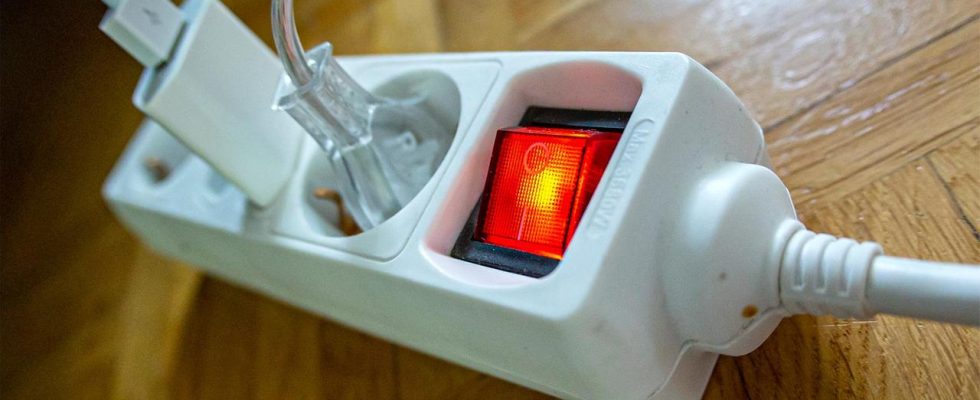exclusive
The federal government emphasizes that the prices of electricity and gas have fallen – price brakes could be allowed to expire at the end of the year. But analyzes show why this could become a problem for consumers.
It was cold outside when the finance minister announced the end of the energy price caps in November. Instead of March 2024 as planned, they are now scheduled to expire at the end of 2023 because there is not enough money for them due to the Karlsruhe ruling on the climate and transformation fund. In addition, the prices of electricity and gas have fallen again compared to the beginning of the year, according to the government.
In the Bundestag, the Chancellor explains: “Electricity and gas tariffs are now available again everywhere in Germany, which are significantly higher than before the crisis – but mostly below the upper limits that we set with the price brakes.”
What the government doesn’t talk about, however, is that it doesn’t know how many households are stuck in contracts with prices that continue to be high and that are above the electricity price caps. Neither the Ministry of Finance nor the Ministry of Economic Affairs have corresponding figures.
Numerous tariffs above average
The current analyzes of electricity and gas prices by the Federal Association of the Energy and Water Industry (BDEW), which provide at least some indication that the price brakes remain relevant ARD capital studio available exclusively. The average electricity price has fallen compared to the beginning of the year. However, it is still high and was most recently at 44.17 cents per kilowatt hour.
If you take out the share of the basic price, you end up with estimates of 40 to 42 cents per kilowatt hour for the labor price. This is the price to which the federal government’s price brake applies, which takes effect at 40 cents. According to BDEW, this means that there are still numerous tariffs above the average.
Without the electricity price cap, consumers with such contracts will have to pay more in the future. It is unclear exactly how many households are affected. But one thing is clear: If you have a longer-term contract, you can’t just get out of it, even if there are now significantly lower offers, emphasizes Thomas Engelke, energy expert at the Federal Association of Consumer Organizations. “We assume that a relevant proportion of consumers are still stuck in expensive contracts.”
Record year 2023
The price average that the BDEW determines reflects the “Germany-wide market offer” – with existing and new customer tariffs. But not the average price of the existing contractual relationships. It is therefore not known how many households have which contract. “However, the regional extent of the tariffs and the population distribution are taken into account in the average figure,” says the BDEW. In any case, BDEW’s analyzes show that 2023 will be a record year – with the highest electricity prices of all time in Germany.
The price of gas has fallen, but remains significantly higher than before the Russian attack on Ukraine. According to the Federal Association of the Energy and Water Industry, the average is currently 11.53 cents per kilowatt hour for single-family homes and 11.03 cents per kilowatt hour for multi-family homes. Because the basic price is also proportionally included, the actual labor price is lower here too – for single-family homes it is around one cent, for multi-family homes it is even less per household. In any case, the gas price is currently on average below the price cap of twelve cents – but probably not by much.
Here too, a number of tariffs are more expensive and no one – especially the federal government – knows exactly how many households this affects. According to BDEW, a provider’s tariff level can “deviate significantly from the average price due to regionally different network charges, but also due to different procurement strategies, procurement situations, the structure of the supplier’s customer base and, at the moment, in particular due to the very dynamic market situation.”
Consumer advice center calls for longer price controls
The Federal Association of Consumer Organizations is still calling for an extension of the price caps because many customers have concluded contracts with high prices in times of need and also in confidence in the government’s promises. “Without the price caps, it will be even more expensive for them,” says energy expert Thomas Engelke.
In addition, it is not yet clear what will happen to the VAT for gas and heat. There is currently a reduced rate of seven instead of 19 percent. The plan was actually to continue this until the end of February. However, given the budget crisis, this is uncertain.
As is the subsidy of 5.5 billion euros for the transmission network fees for electricity in order to keep prices stable. The network fees for electricity for household customers currently make up 21 percent of the total price. This is already a significant increase compared to the previous year.
Warning of domino effect
BDEW Managing Director Kerstin Andreae warns against this ARD capital studio faced with a domino effect: “If the transmission network fees rise, the distribution network operators will also have to increase their fees. The energy suppliers will in turn have to include the overall increase in network fees in their price calculations and adjust prices that have already been announced.” And that would affect the end customers.
The bottom line is that anyone who is stuck in a contract with high prices will have bad luck in the coming year. But it could also be more expensive for everyone else.
Jan Zimmermann, ARD Berlin, tagesschau, December 12, 2023 6:07 a.m

